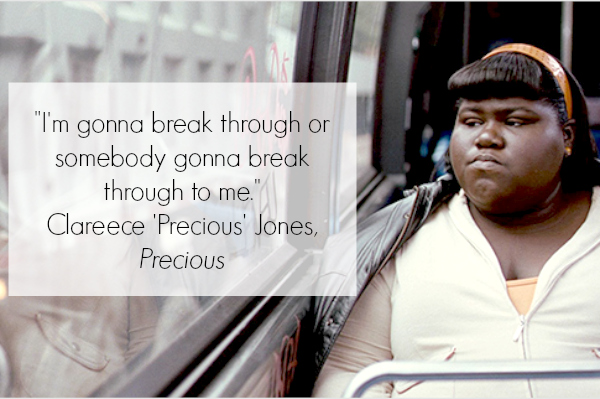Precious portrayed a teenager who is molested by her father, and because of jealousy, is abused by her mother, a lonely, love starved, crazed black woman who, instead of protecting her daughter, sees her as a competitor for her husband’s love. Unfortunately, this is the reality for many trapped in poverty in some urban and rural communities. Things that resonated with me.
Obesity in the Black community. Over 50% of Black women over the age of 40 suffer from obesity. I wonder if anyone is reporting on the number of teenage and young adult women who are also obese. Obesity and the numerous health problems that plague the Black community stems from the “slave” food diet, that passes off as “soul,” food, ignorance about healthy dieting and the fact that many Black mothers are overworked and too busy (some too trifling) to prepare healthy food for their children(and teach their daughters how to so ). Because of how early unhealthy dieting starts, young people face the risk of suffering from health problems in their 20s and 30s that many don’t suffer from until their 40s and 50s.
Unsupported and Loved deprived Black Mothers. Monique brilliantly portraying a Black woman whose sanity is fast fading with each passing day, speaks to the numerous Black women who walk the line between sanity and insanity, due to the consumption of bad food, tobacco, alcohol and drugs, being stressed out and deprived of love and support.
Sexual Abuse in the Black Community. This is more common than many want to admit. And it not only happens to girls, but boys as well. Something that is not discussed much because of homonegativity plaguing some the Black communities.
Stereotypes of Black Women. Darker skinned sistas—overweight, mean, wicked, abusive and welfare dependent, lighter skinned sistas—thin, shapely, loving and caring, educated, employed, and together.
What resonated with me the most is the decreasing role of, and value for support from extended family members, especially older generations of Black women. The number of teenagers and boys and girls much younger, who were viewing the film, with, and without their parents was astounding. The fact that they laughed throughout the entire film indicated that they did not grasp the gravity of what they were viewing. In spite of this, they were exposed to a father and mother molesting their own daughter, a daughter having two children by her father, a teenage hitting on an older man and, one even putting her leg up, and other social ills that for far too many, has become normalized. Many young parents do not take advice form older family members; and many older family members are so busy trying to be friends to their children, that they do no advise them they way they should. Someone should have the parents not to bring their children to that film. It had an “R” rating.
The last scene with Precious walking away with her two children, seemed to indicate that she had and would triumph, on some level, over the tragedies that surrounded her life. Many teenage mothers, however, are not so fortunate. The reality is, Precious like many teenage mothers is a high school drop out, which means that she has no education or skills to take to the job market, she comes from a dysfunctional family to whom she cannot turn to for support, she has two children and she is alone. If she does not end up on welfare, she will definitely have to start out with it. What separates Precious from other teenage girls like her, however, is that she was empowered through the mentoring received from other women. Far too many teenage girls, suffer from low self esteem, low self efficacy, depression and the most they can hope for is to end up like their crazed mothers.
What Are We Going to do About it?
Those of us who have triumphed over tragedy, and those whose experiences do not come anywhere close to what we saw in the film, have a lot to offer young women like Precious and can make a difference in their lives. The hope is that more women step in at mentor teenage and young women like Precious.
Follow me